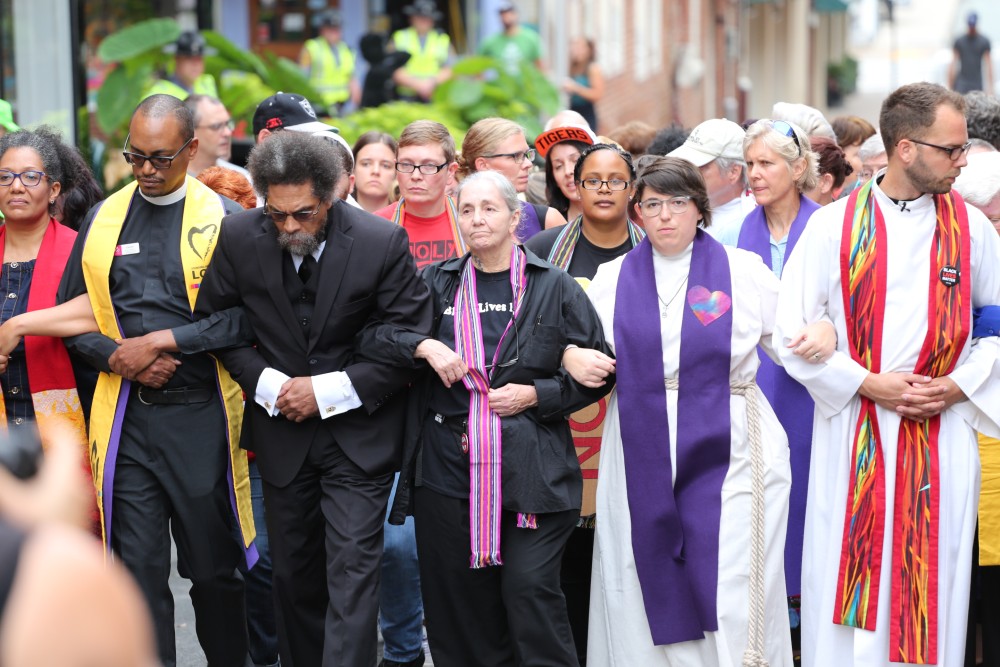Denouncing the evil lie of white supremacy
The right-wing extremists aren't counting on support from most white people. Just silence.

The neo-Nazis and white supremacists who gathered in Charlottesville—and who plan to gather again in other places in coming months—did not hold their rally to persuade people of the rightness of their cause. They gathered to intimidate and to terrify. One of them used a car as a deadly weapon against counterdemonstrators. The entire rally was an act of terrorism—intended to demonstrate power, stimulate fear, and provoke Americans’ deepest anxieties.
The extremist right-wing groups are not counting on majority support, but they are counting on majority silence. They do not expect media adulation, but they are eager for media attention. And they are emboldened by the president. For all these reasons, it is crucial for Americans—especially white Americans—to find every way they can to loudly and clearly condemn white supremacy for what it is: an evil lie and a dangerous cancer in a nation that seeks to provide dignity and justice for all.
White supremacy must not only be denounced; it must also be renounced through concrete acts. This can take various forms—beginning with putting one’s moral convictions and one’s body on the line the way that clergy and other leaders did in Charlottesville, opposing the hate groups with their public presence. The president and his administration can take the concrete step of funding—rather than eliminating—programs that counter white extremist groups. State and municipal leaders can take the concrete step of removing monuments in public spaces that celebrate the Confederacy, explaining to their constituents why this action helps move the nation toward a better future for all Americans.





